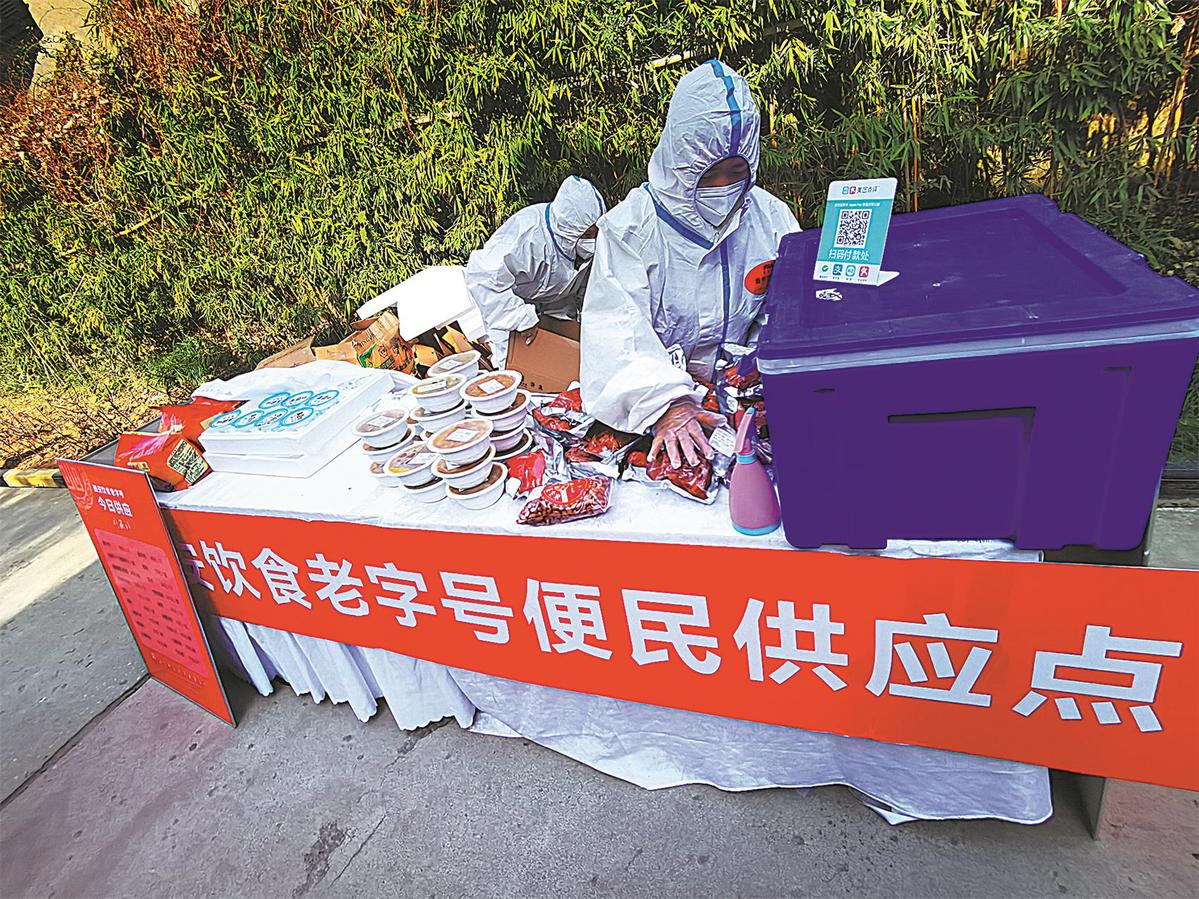Residents' lives made easier during pandemic






New QR codes, green channels and insurance cover introduced
Nearly 16,000 residents in Qiqihar, Heilongjiang province, have received cards printed with their personalized QR codes, with which they can easily complete nucleic acid tests or enter a public venue without a smartphone.
To help ease difficulty in scanning codes with smartphones for some locals, especially the elderly, the public security and district authorities have worked to promote the user-friendly initiative of "reverse scanning" in the city's Meilisi Daur district.
This is one of the many creative measures taken by government bodies at the grassroots level nationwide to make life more convenient during outbreaks of COVID-19.
Gao Changyong, a 73-year-old retired teacher in Meilisi Daur, has felt more comfortable going out in recent days.
"It has become much easier for me to take nucleic acid tests or enter a public venue without a phone since I received a card bearing my personalized QR code on April 2," he said.
"For the past two years, I have felt embarrassed while visiting a public venue, because I didn't know how to use a smartphone. I had to wait for staff members to write down my information, which takes a long time."
Gao said he had to ask his children to send him daily supplies in order to avoid going out, as sometimes seniors had to line up outside even in extremely cold weather.
"Last year, I got my first smartphone, but I found it hard to master the functions such as code scanning. When a community worker told me about the new reverse scanning method, I was really happy and immediately applied to use it.
"A few days later, the card arrived, which has made my life more convenient and efficient. Now all I need do is show my card when asked to do so."
Zhuang Tiyong, a local official in Meilisi Daur, who is in charge of the project, said: "With a green code, visitors can enter venues. Their visits will also be recorded.



















